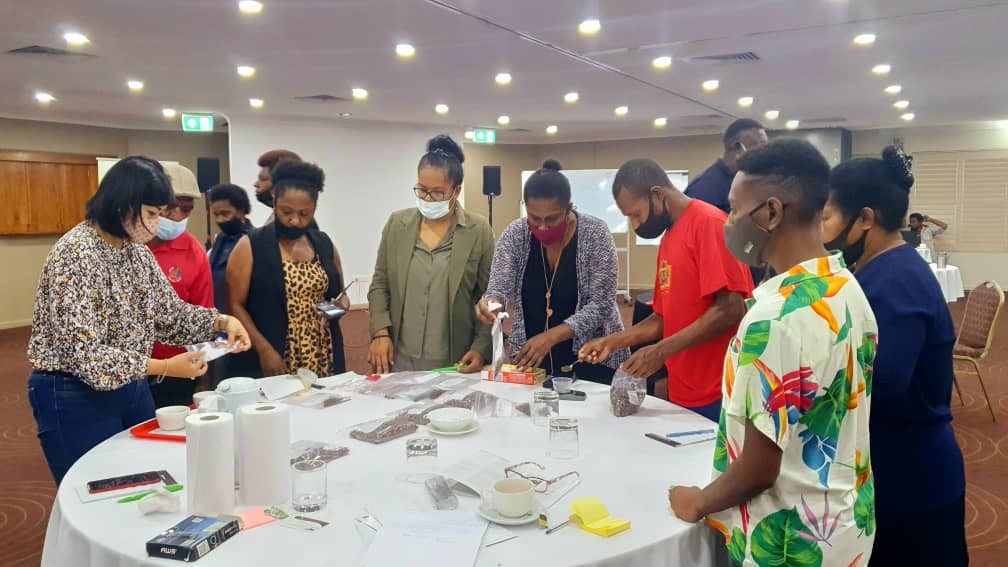New standards to improve PNG’s coffee trade
The Coffee Industry Corporation (CIC) rolled out the coffee industry’s revised green bean standard and new regulation policy guidelines for coffee trade in Papua New Guinea (PNG). More information on the new guidelines can be found in the Regulatory Policy Guidelines & Procedural Manual which can be requested from CIC.
The new green bean standards address the price discrimination between small holders and plantation owners in the coffee industry. In compliance with international standards, the new coffee grading standards has been reduced from 13 grades to 5 grades. The reduction of the grades aims to ensure competitive prices for coffee producers.
Through the support of the Australia and New Zealand Governments, CIC and the Pacific Horticultural and Agricultural Market Access (PHAMA Plus) Program conducted a 4-day workshop recently in Port Moresby for the Southern region to ensure all coffee stakeholders are informed on the revised green coffee standard and regulatory policy guidelines. The workshop also allowed the parties to discuss changes in the documentation process, the Online Export Manager System and gaps within the industry that need specific training. CIC has already conducted workshops on the new CIC Green Bean Standards for PNG and Policy Guideline for coffee trade in the Highlands, Momase, and Island regions.

The standards are created and approved by the National Institute of Standards and Industrial Technology (NISIT).
“The workshop benefited senior management representatives from licensed (and soon to be licensed) exporters, processors and manufacturers operating within the nation’s capital and southern region. Representatives from key government line agencies also attended the workshop. Exporters are the primary direct users of the standards, the leading export point being Lae, facilitating 99% of PNG coffee exports.
CIC recently launched its Business Plan and the National Coffee Development Roadmap 2020-2030, with the aim to increase production to 3 million bags by 2030. Strengthening regulatory functions in the industry will enable a healthy export business environment for stakeholders, thus meeting market requirements.
“Since October 2020, the CIC’s Export and Quality Control office in Lae ensures that the revised green coffee standard is enforced and any non-compliance result in shipments being prevented from entering the harbour for exports,” Ms Romalus said. The core mandate of CIC is to enforce robust regulatory aspects to ensure profitability and efficiency in the coffee value chain.
The collaboration between PHAMA Plus and CIC aims to contribute to the strengthening of the partnership between the state and private sector, a necessity for the PNG coffee industry.
ENDS
For more information, please contact PHAMA Country Manager Sidney Suma on s.suma@phamaplus.com.au
